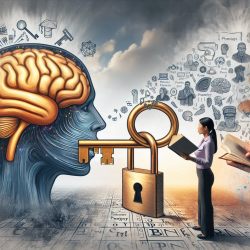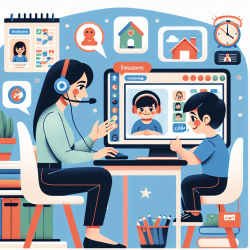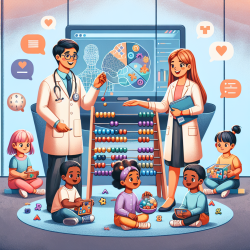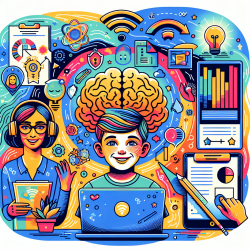As a speech-language pathologist dedicated to data-driven decisions, I find the intersection of music, neuroscience, and well-being to be an area rich with potential for enhancing therapeutic outcomes for children. The research article "Music, Neuroscience, and the Psychology of Well-Being: A Précis" by Adam M. Croom (2012) provides compelling evidence that musical engagement can significantly contribute to human flourishing. Here, I will discuss how practitioners can implement these findings in online therapy services to improve children's outcomes.
Positive Emotions through Music
Music has been shown to stimulate the release of dopamine, a neurotransmitter associated with pleasure and reward. Studies have demonstrated that musical engagement can lead to intense emotional experiences and dopamine release in the brain's striatal system. This is particularly relevant for children in therapy, as positive emotions can enhance their engagement and motivation.
- Implementing music therapy sessions that incorporate songs and rhythms children enjoy can boost their mood and willingness to participate.
- Using music as a background during online therapy can create a more relaxed and enjoyable environment.
Strengthening Relationships
Music has a unique ability to foster social bonds. Oxytocin, a neuropeptide linked to social bonding, increases when individuals engage with music. For children, music can be a powerful tool to enhance their social skills and relationships.
- Group music therapy sessions can help children develop teamwork and communication skills.
- Encouraging children to share their favorite songs can create opportunities for social interaction and connection.
Enhancing Engagement
Flow, a state of complete absorption in an activity, is a crucial component of well-being. Music can facilitate flow experiences by providing a structured yet flexible framework for engagement.
- Designing therapy activities that involve musical games or challenges can keep children engaged and focused.
- Using rhythm and melody to structure sessions can help maintain children's attention and participation.
Achieving Accomplishments
Accomplishment is a key factor in well-being. Music offers numerous opportunities for children to experience a sense of achievement, whether through learning to play an instrument or mastering a new song.
- Setting small, achievable musical goals can provide children with a sense of progress and success.
- Celebrating musical milestones can boost children's confidence and self-esteem.
Finding Meaning
Engaging with music can provide children with a sense of purpose and meaning. Whether through participating in a group performance or creating their own music, these activities can contribute to a child's overall sense of well-being.
- Encouraging children to express themselves through music can help them find personal meaning and identity.
- Incorporating culturally relevant music can enhance the therapeutic experience by connecting children to their heritage and community.
Incorporating music into online therapy services offers a multifaceted approach to enhancing children's well-being. By leveraging the power of music, practitioners can create more engaging, meaningful, and effective therapy sessions.
To read the original research paper, please follow this link: Music, Neuroscience, and the Psychology of Well-Being: A Précis.










